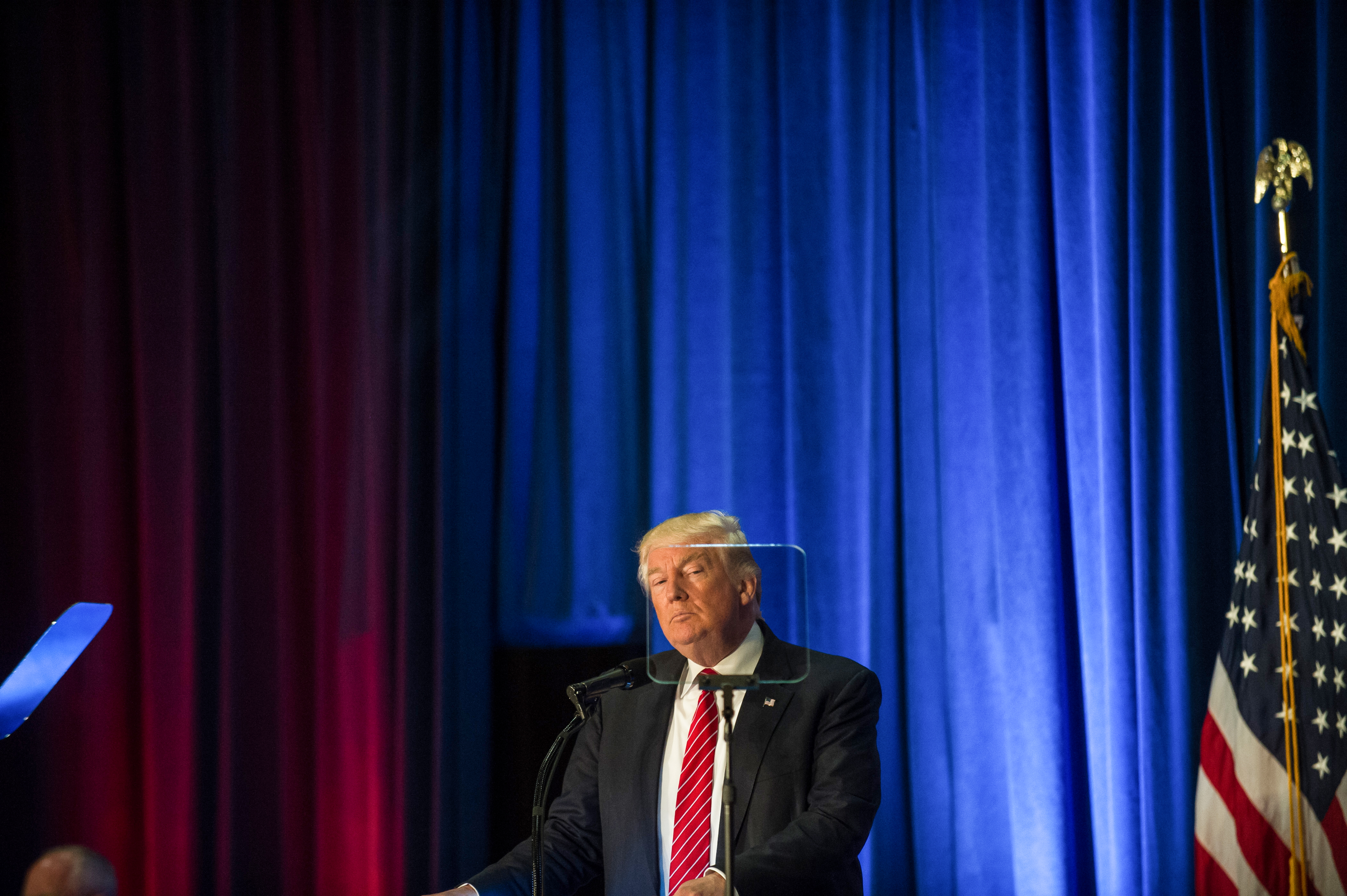The hidden message in Trump's terrorism speech
His policies point to only one impossible solution: An alliance with Russia.


A free daily email with the biggest news stories of the day – and the best features from TheWeek.com
You are now subscribed
Your newsletter sign-up was successful
Donald Trump's speech on Monday, in which he outlined his plan to take on the Islamic State, had a Russia-shaped hole in it.
Brought to heel yet again by the few "mainstream" Republicans within his campaign coterie, Trump managed to tick off the failures, large and small, of Barack Obama's and Hillary Clinton's foreign policy — and to state that we're due for a change. While he did not make a coherent case for what we exactly ought to change, the key to the pivot Trump desires is an alliance with Russia. And though in his speech, Trump praised Russia as a putative partner in Syria, he didn't state the obvious: You cannot fight militant Islam, and abandon George W. Bush's and Obama's way of doing so, without making Russia our number-one ally.
Without a hand-in-hand relationship with Moscow, it's hard to see where Trump would turn for true help in waging his war on the worst of Islam. He places great faith in the combined powers of a new coalition of the willing. "We will work side-by-side with our friends in the Middle East, including our greatest ally, Israel," he pledged in his speech. "We will partner with King Abdullah of Jordan, and President Sisi of Egypt, and all others who recognize this ideology of death that must be extinguished."
The Week
Escape your echo chamber. Get the facts behind the news, plus analysis from multiple perspectives.

Sign up for The Week's Free Newsletters
From our morning news briefing to a weekly Good News Newsletter, get the best of The Week delivered directly to your inbox.
From our morning news briefing to a weekly Good News Newsletter, get the best of The Week delivered directly to your inbox.
Oh?
While Trump pointedly excluded Iran from the team, he failed to include Iran's Saudi archrivals, who would have to be the linchpin of any anti-ISIS Sunni alliance. It is the Saudis who have done the most to fund and foment radical Islam abroad. When it comes to direct combat against the Islamic State, Jordan and Egypt will deliver exactly what Sen. Lindsey Graham warned of in the early Republican primary debates: "mythical Arab armies." And if Israel is touted as topping the roster (despite handling its Arab relations with impressive tact and efficacy, thank you very much), it is likely Trump's would-be Sunni allies will be able to muster even less.
Angling for a sort of realism, Trump allowed "we cannot always choose our friends." The problem is deeper. We cannot always make our friends into powerful allies.
Sometimes we can: enter NATO. But here, the Russia-sized hole in Trump's speech swallows up our great success story. To be sure, Trump vowed to "work closely with NATO on this new mission" — because the organization redeemed itself with "a new division focused on terror threats" in the wake of his belittling remarks. Far be it for anyone to discourage NATO from deterring massive threats. But this is precisely what NATO has always done, and as the Russian threat has dramatically swelled, Trump has repeatedly labeled it "obsolete." You can imagine what a President Trump would have to say about a NATO splitting its time between defending Europe from terroristic jihad and defending Europe from Russian subversion.
A free daily email with the biggest news stories of the day – and the best features from TheWeek.com
What Trump needs and wants is a NATO with the same name but a different mission. And that means Trump needs a Russia that either lays off of Europe or has a free hand there. Of course, he shows no interest — none — in ensuring Russia lays off, not with carrots nor sticks. All of this means that, due to his position on Russia, Trump cannot count on NATO or our Arab allies to do what he wants; therefore, he requires Russia to make up the difference.
But he cannot say or do this. Putin's regime simply can't be made an ally. Russia's rulers do not like us. They do not respect us. They do not trust us. They do not think like we think, they do not cherish what we cherish, and they do not fight for what we fight for.
An attempted alliance with Russia would not make Russia more like the U.S., but, hideously, the reverse. Even as we grew closer in character to that fundamentally corrupt regime — even to the point of embracing its comfort with casual evil — we would not really gain its respect or its trust. We would be what Trump so bitterly mocked Obama for trying to turn us into: a junior partner. Whatever the sitting administration's failures, that's not change America can believe in.
James Poulos is a contributing editor at National Affairs and the author of The Art of Being Free, out January 17 from St. Martin's Press. He has written on freedom and the politics of the future for publications ranging from The Federalist to Foreign Policy and from Good to Vice. He fronts the band Night Years in Los Angeles, where he lives with his son.
